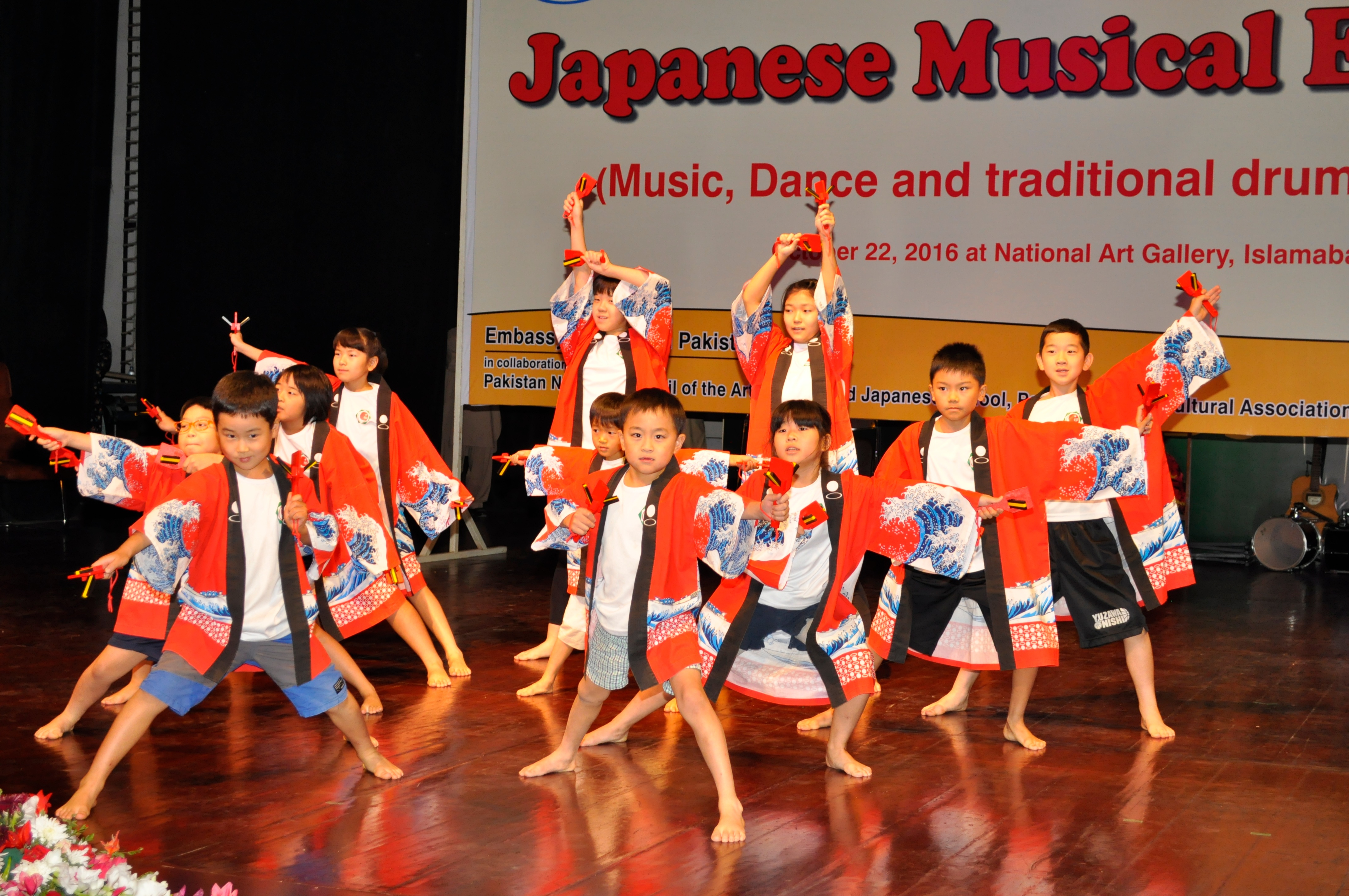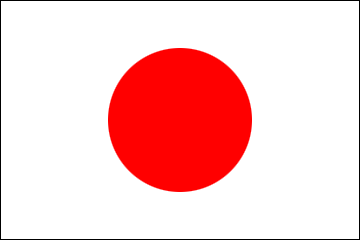JAPANESE MUSICAL EVENING HELD AT THE NATIONAL ART GALLERY (PNCA) ISLAMABAD
2016/10/26
PRESS RELEASE N0: JPNEMPAK 16-33
PRESS RELEASE
“JAPANESE MUSICAL EVENING” HELD AT THE NATIONAL ART GALLERY (PNCA) ISLAMABAD
“JAPANESE MUSICAL EVENING” HELD AT THE NATIONAL ART GALLERY (PNCA) ISLAMABAD
Islamabad: 22nd October 2016
The Embassy of Japan in collaboration with the Pakistan National Council of the Arts, Islamabad Japanese School, Pakistan-Japan Cultural Association and the MEXT Alumni Association of Pakistan organized a musical performance “Japanese Musical Evening” on Saturday 22nd October 2016 here at the auditorium of the National Art Gallery Islamabad. The musical performances comprised of Wadaiko drumming (traditional Japanese drums), Japanese & Pakistani songs and instrumental music.
The show started with the beautiful dance performance of Kindergarten kids of Islamabad Japanese School. The group of these kindergarten kids aged between 3 to 6 years is known as Nakayoshi Yochien Group. The dance performance was followed by the Japanese songs presented by Pakistani volunteers studying Japanese language and the band consisting of Pakistani prominent musicians and Japanese society volunteers including Mr. Katsunori Ashida, Head of Public Affairs, Embassy of Japan. Mr. Ashida spellbound the audience when he sang popular Punjabi Sufi song “Laal meri pat rakhio bhala jhoole laalan”. He also won great applause of the audience on singing Pushto song “Larsha Pekhwar Ta”.
Later children of Islamabad Japanese School between 7 to 15 years old performed a lively set of traditional dance and a drum beat ensemble. The energetic and rhythmic dance with Wadaiko drumming by the students enthralled the audience by their heart-warming performances. The purpose of the event was to showcase traditional as well as contemporary Japanese music and dances to the Pakistani people. Pakistani songs and instrumental music added further colors to the show.
Wadaiko is the Japanese name for both the act of drumming in a traditional Japanese style (of which there are many) and the drums themselves. The name comes from the Japanese words 'Wa', meaning 'Japanese' (in parallel “harmony” as well, and 'Taiko', meaning 'drum'. In modern Japan, wadaiko has become more of a performance art, seen at festivals or in concerts.
The amateur performers showcased a folk tradition of Japan by exemplifying their dedication and discipline in mastering a complex choreography. This musical performance provided an opportunity for the Pakistani people to discover Japanese culture and tradition through their little Japanese friends. (End)

